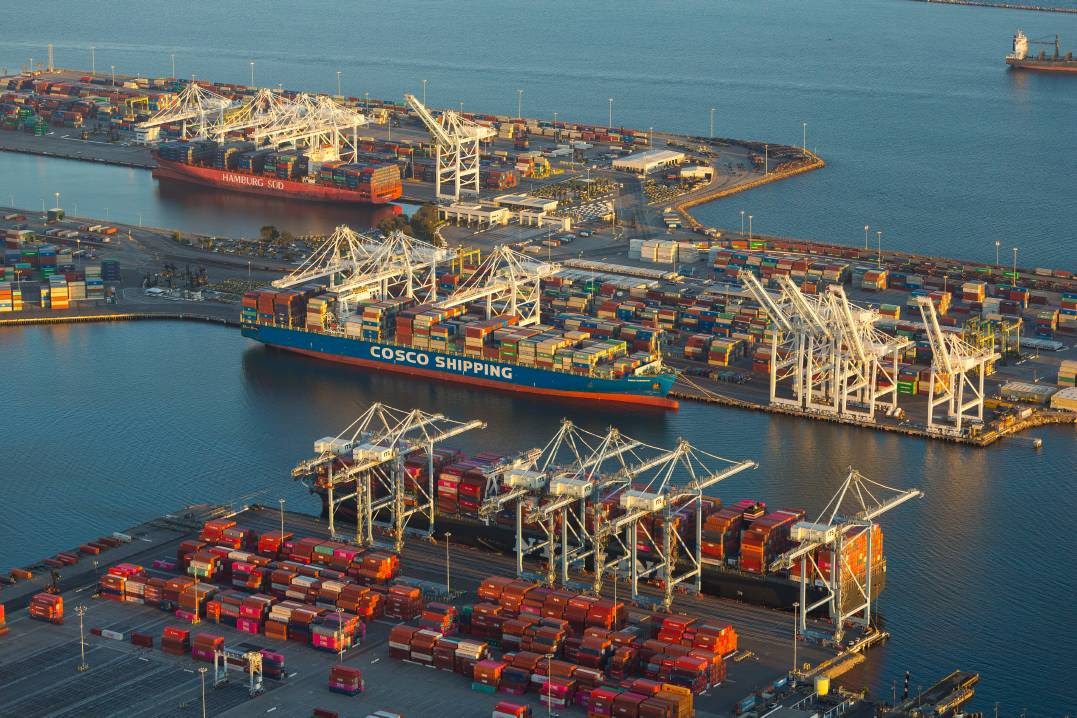Freight Rates Stall After Lunar New Year as Carriers Eye Blank Sailings
Container freight spot rates on the major trades saw limited movement this week as supply chains in China slowly began to restart following the new year holiday.

By Nick Savvides (The Loadstar) –
A Pennsylvania-based shipper has lodged a formal complaint against two global shipping lines.
In a $600,000 lawsuit filed with the Federal Maritime Commission (FMC) last week, MCS Industries, a family-owned home furnishings business, claims MSC and Cosco failed to meet contractual obligations, in violation of the 1984 US Shipping Act.
MCS argues that “foreign-owned” shipping lines have: “Unjustly and unreasonably exploited customers, vastly increasing their profitability at the expense of shippers and the US public generally, which bears increased freight cost in the form of inflation.”
According to the suit, beneficial cargo owners (BCOs) operating to and from the US ordinarily pay for the shipments of cargo through bilaterally negotiated contracts with shipping lines, while spot rates are reserved for smaller shippers or one-time cargo movements.
However, MCS claims that, with the onset of the Covid-19 pandemic, shipping lines began to collude to manipulate the market.
The shipper told the FMC: “Global ocean carriers began taking parallel and strikingly similar actions to prop up ocean carriage pricing and improve their profitability at the expense of shippers and the public.”
These actions, it added, included blanking sailings, which had the effect of reducing capacity by creating an “artificial scarcity and boosting prices on the spot market” as demand increased.
Moreover, MCS claims that even as demand returned, the carriers did not return to pre-pandemic methods of working, but rather “doubled down” on the “manipulation” of the market, artificially keeping prices high.
A container load shipped from China to the US west coast in 2019 would have cost $2,700, but today that same container voyage would be priced in excess of $15,000, said MCS.
The shipper alleges it has first-hand experience of carrier “misconduct”, with the lines refusing to discuss these issues when approached by MCS.
The filing claims: “In a stark break from pre-pandemic practice, several ocean carriers refused to negotiate or provide service contracts to MCS, and those that did provide such service contracts, including the respondents named herein, refused to provide more than a fraction of the cargo capacity that MCS requested and needs, despite the fact that the respondents overall have continued to operate at or near pre-pandemic capacity.”
According to MCS, Cosco offered just 1.6% of the capacity it was contractually obliged to make available, while MSC fared better, offering 35% of contracted cargo space.
“By definition, the service contracts required respondents to “commit to a certain rate or rate schedule and a defined service level, such as assured space, transit time, port rotation, or similar service features,” says the complaint.
And, in an alleged escalation of their failure to meet their contractual obligations, the shipping lines, including Cosco and MSC, then “forced” MCS to buy space on the vastly inflated spot market.
The carriers were able to renege on their contracts, claims MCS, because the lines were able to organise themselves into alliances which control 90% of the transpacific trade, and it is this alliance structure which allowed carriers to act in unison, forcing shippers onto more expensive spot rates, rather than transporting cargo at much lower, contracted rates.
According to MCS the shipping lines have “obliterated” the stable structure of the ocean freight transport industry.
In a first reaction to the news that MCS had filed a formal complaint, Global Shippers’ Forum executive James Hookham said the organisation would be “watching the developments closely”, and the case would “test the mettle” of the FMC and the regulatory structure in the US.
He went on to say that parties would consider whether the action revealed any gaps in proposed amendments to the Shipping Act. In addition, the fact that MCS would have to act alone in the bringing of this case would also come under scrutiny.
According to Mr Hookham, current legislation prevents shippers from entering into a powerful class action agreement that would bring in other complainants.
The Loadstar is known at the highest levels of logistics and supply chain management as one of the best sources of influential analysis and commentary.
Sign up for gCaptain’s newsletter and never miss an update

Subscribe to gCaptain Daily and stay informed with the latest global maritime and offshore news
Essential news coupled with the finest maritime content sourced from across the globe.
Sign Up